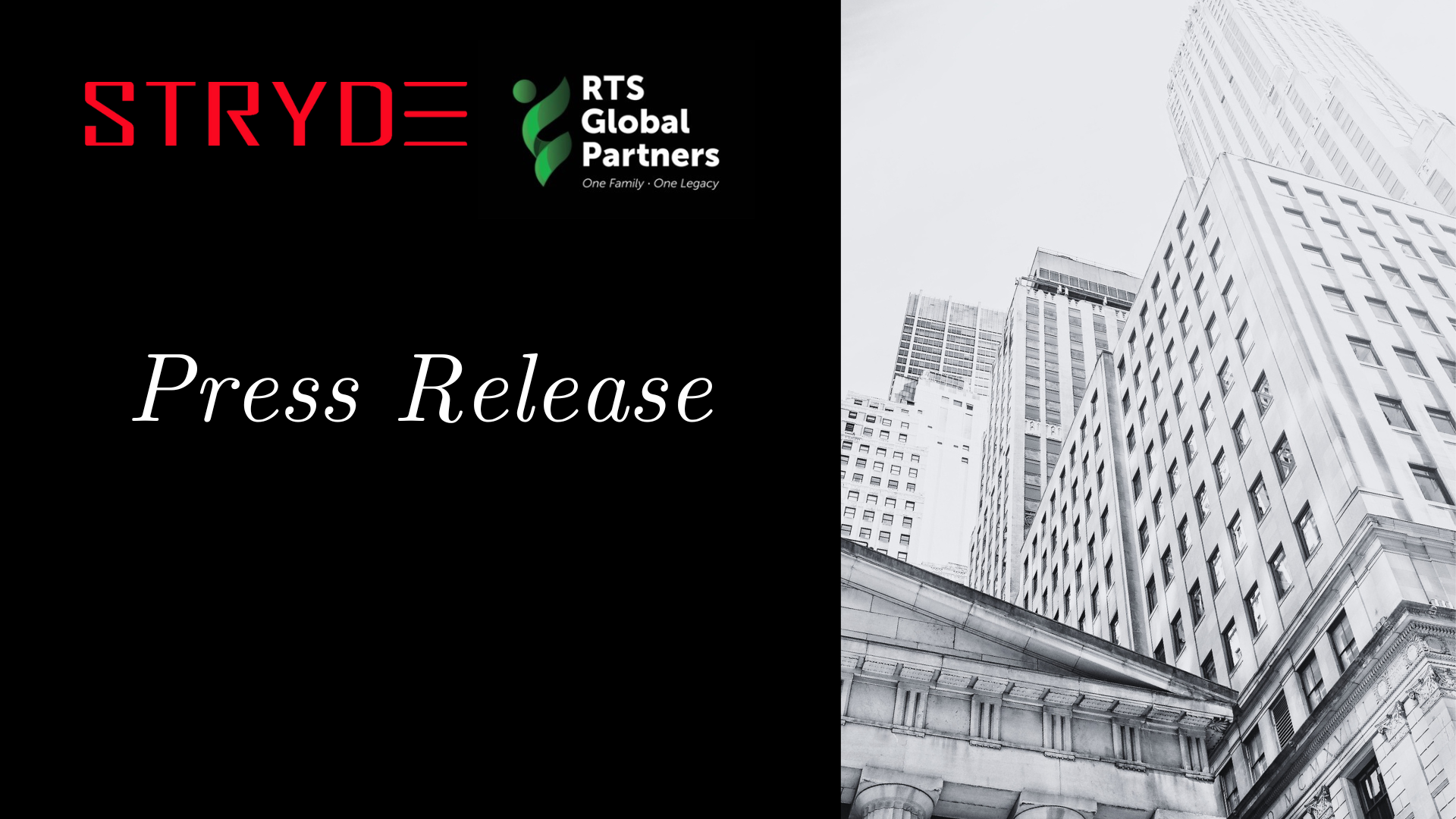
2025-06-02
The Growing Significance of the Boutique MFO
Multifamily Offices (MFOs) are financial entities that offer comprehensive wealth management services to ultra-high-net-worth (UHNW) and high-net-worth (HNW) individuals. Globally, the number of MFOs is on the rise, and while it is difficult to pinpoint the exact figure of these organizations due to differing definitions and terminology, there is a consensus that as global wealth increases* and is transferred to subsequent generations, the number of firms providing MFO services will keep growing.
MFOs go beyond traditional investing management and offer a host of wealth solutions including but not limited to comprehensive tax planning, intergenerational wealth transfer, complex estate strategies, financial planning, budgeting and reporting, philanthropic services, compliance, family/corporate governance, risk and liability management, business succession planning, next-gen education and security services. Rising costs and increased regulations are influencing some SFOs and UHNWs to look for partnerships with other families to share resources and costs in the form of an MFO service offering. The shared cost model is the primary reason why MFOs can be a compelling choice for UHNW clients looking for a solution to manage their wealth.
Blurring Business Models
Another important trend blurring the MFO business model is the convergence of services offered by MFOs and investment advisory firms. Traditional investment advisors are expanding into family office-style offerings, such as estate planning, philanthropy advisory, concierge services, and family governance; conversely, MFOs are increasingly building in-house investment capabilities or acquiring boutique advisory firms to offer more tailored portfolio management. While there has been much consolidation in the space in recent years with large firms buying up smaller firms (Rockefeller Capital Management in the USA and Schroders in the UK) there are also many new entrants providing specialist services and promising a ‘white glove’ service at the other end.
Within the MFO ecosystem, there are different types of firms, each servicing and appealing to specific client needs. These organizations can differ in size, investment expertise, breadth of services offered, size of clients served, etc. There is great variation in how each firm operates and what services they offer. Some are structured to target like-minded wealth creators (athletes, entrepreneurs, corporate and financial services executives, etc.) while others are more aligned with the types of investment niches that are important to their clients (real estate, alternatives, private equity, impact, etc.). Other families may be more internationally minded and require an MFO that can serve global investments and the needs of clients.
When it comes to choosing an MFO partner, it is important to understand the different types of firms that exist. MFOs sit within large, multi-national organizations/asset managers to serve their UHNW clients in a more bespoke and service-oriented fashion. Publicly traded organizations such as UBS, JP Morgan and AlTi Tiedeman offer family office services to provide clients with investment expertise, financial and estate advisement, while simultaneously offering access to best-in-class investment products, technology and infrastructure.
The Emergence of the Super-Boutique MFO
Within larger firms boasting a strong brand and reputation, there exist super-boutique MFOs. While it may seem contradictory, these large firms house an elite team within the broader framework, providing a luxury service to a smaller group of clients. These teams deliver highly customized services, while the overarching firm is characterized by scale and a focus on acquisitions to grow AUM and infrastructure. Notable examples of super-boutique MFOs include Bessemer Trust, Pathstone, and Stonehage Fleming.
Some of the most well-known and successful MFOs have formed from private Single Family Offices (SFO) that adapted an already proven model to expand the offering to serve other wealthy families. These SFOs created a certain pedigree of advisors and leadership within the initial family office that set the stage to scale their operations and offer the same service to a wide variety of UHNW clients. Some of the most prominent examples of this include the Rockefeller, Pitcairn and Zuckerberg (Iconiq) families. Because the SFOs of these distinguished families understood the intricacies of looking after family wealth and the benefits of long-term, patient capital, they were able to expand the offering to other enterprising families through a well-developed MFO.
The Standalone Boutique
There is also a cadre of MFOs that prefer to operate at a smaller scale, resulting in a more exclusive offering. These firms are typically more flexible and specialist in approach. Examples of these boutique MFOs are Glenmede, Twin Focus and Ballentine in the USA; Wren Investments and Patronus Partners in the UK. These firms work with fewer families, offer high-touch service, are product agnostic with a fee only model, prioritizing customization all while offering multiple wealth management services under one roof. As Patronus Partners states on their website: “We prefer to stay small, independent and optimal for a limited number of discerning families.” These firms present more client-forward offerings as many larger MFOs can be pre-occupied with growth and acquisitions, juggling numerous clients, and facing pressure from shareholders for revenue growth, all of which can negatively impact clients.
The boutique MFO is the closest wealth management offering to a SFO, all while sharing resources with other families to keep costs down. For the context of this article, we will explore the specialist MFO, how they differ from other MFO offerings, what benefits make them an appealing choice, potential limitations and considerations for choosing the most appropriate option.
What do the various types of boutique MFOs have to offer?
Boutique MFOs are a popular solution for wealthy families as they offer a level of service that is superior to other wealth management firms, mainly because their fees are higher and they operate with a smaller client load, while still providing a holistic approach to managing the needs of a family. In summary they offer:
-
Highly customized services tailored to each family's unique needs
-
Deep expertise in niche areas (e.g., impact investing, digital assets, cross-border tax)
-
White-glove client experience with low client-to-advisor ratios
-
Discretion and exclusivity, often serving fewer than 20-40 families
The most common reasons the ultra-wealthy will choose a family office structure (whether SFO or MFO) over a wealth management firm are flexibility, confidentiality, individualized service, customized investment strategies, best-in-class talent and control.
Economies of Scale
Boutique MFOs share resources to achieve specialized advice and oversight without the expense of having to independently hire a full-time employee in each area (i.e. tax, legal, investment, finance, etc.). Despite claims by some experts that an UHNWI can form a SFO with $100-200m in AUM, depending on where the family is in the world, that’s not realistic if a family wants in-house expertise across all of their needs. “Subscale families” (a term that conceptually refers to families whose wealth or complexity does not warrant the establishment of a SFO), are a likely fit for the offerings of boutique MFOs as it is more economical to share services due to the high cost of a team of full-time employees, which usually amounts to 1-2% of liquid assets as a commonly cited benchmark.
Culture Fit
Additionally, boutique MFOs can appeal to individualized needs of families just as a SFO would. These firms typically develop a brand with niche expertise to cater to specific demands of UHNW clients. Specialized MFOs can also be built around like-minded communities and communication styles. Iconiq Capital, while now considered large and super-boutique, started out more specialized in nature catering to tech entrepreneurs in Silicon Valley. Similarly, Affinity Sports based in London offers services to professional athletes including personal branding, media management, asset protection and structuring, estate planning and succession and concierge family office services. There is also a segment of MFOs who align with religious principles and cultural values. One can find more LATAM focused MFOs in Miami, for example, and religious centered offerings in the Middle East.
MFOs under the Radar
There exists another category of specialized MFOs that provide a range of services, excluding investment management. For instance, hedge fund billionaires typically do not need a formal and costly investment team since they possess the knowledge to manage their own capital. Instead, this group of UHNWIs may collaborate with specialized MFOs that deliver comprehensive services in areas such as tax, gift and estate planning, cash management, next-generation financial planning, and treasury and liquidity forecasting to aid their investment choices. Many of these firms do not actively market their brands and sometimes refer to themselves as a “closed MFO”, they operate discreetly, which undoubtedly adds to their allure.
Niche asset classes
From an investment perspective, boutique MFOs can offer the opportunity to invest in more niche asset classes, achieving greater portfolio customization that bigger firms might not have access to, particularly within alternatives. These may come from exclusive access to deals within the MFO network. For family-led MFOs, exclusive investment opportunities could involve investing alongside the principal. These organizations can be nimble with the flexibility to make quick, swift and informed decisions, pivoting to adapt to ever-changing external market dynamics.
Fiduciary Alignment
Boutique MFOs can also offer clients more independence and fiduciary alignment as there is no incentive to sell proprietary products to clients or hit sales goals. This fiduciary approach breeds an environment of trust and commitment to the client while other institutions can have commission-based models. In fact, trust is a leading reason why clients choose to partner with these types of firms. With no overarching agenda, the mission of a boutique MFO is to provide the best service to cater to the exact needs of the clients. Their independence means they are not pushed to meet certain revenue/profit targets in the same way a public firm is. In fact, most Boutique MFOs operate a partnership model, meaning that partners are invested in the success of the business. When the client wins, the business wins.
Unwavering Attention to Client Service
Lastly, boutique MFOs are client-centric at their core. Clients have the comfort of dealing with a smaller team, which helps to maintain confidentiality and privacy. As such, advisors are readily available no matter the time or day. They offer support with more nuanced needs, such as lifestyle management and family dynamics. Family members may call on their advisor when needing tickets to an exclusive event or to facilitate complex travel needs. Some MFOs are so client-focused that they have defined limits to only serving a select few families and remain “invitation only” in their approach to new clients. As such, the teams truly become an extension of the client’s family.
Boutique MFO Limitations
Numerous factors make boutique MFOs the preferred option for many UHNW families; however, there are indeed constraints to take into account when exploring this choice. Ironically, although a smaller size can serve as a competitive edge, it may also function as a drawback, as it can result in fewer resources, limited economies of scale, and a more restricted network compared to larger, national MFOs.
Talent Challenges
While the small size may not seem like a hurdle, it can become a roadblock when a client has a complex or uncommon need. Boutique MFOs allow families to pull resources, and the number of UHNW families serviced is usually quite low (10-40), resulting in the potential for higher costs than would be associated with a larger, national MFO. For example, a small US-centric oriented MFO might not have the expertise to deal with an international family with assets in multiple jurisdictions.
The small team size and structure of a boutique MFO could be looked at as both a positive and a negative. A flatter organization can mean more collaboration and less bureaucracy but with few leaders at the top, there could be the risk of culture/business change if a proper succession plan is not in place. The partners who have worked with and advised baby boomer clients, for example, could be less attractive to the next generation of millennial family members, whose interests and values might look vastly different. In fact, a large majority of next-gen heirs change wealth managers from the previous generation due to lack of interpersonal connection, differing values and investment perspectives and a lack of proactivity to build a lasting connection with next-gen family members prior to the wealth transfer.
Smaller MFOs have a greater ability to manage and shape culture; however, they face difficulties in retaining top talent due to a potentially restricted or unclear career trajectory resulting from limited mobility, growth, and opportunities. In contrast, larger firms are capable of drawing in superior talent by offering prospects for development, exposure, and career advancement.
Technology Limitations
Another constraint to take into account is the dedication to investing in advanced technology. While it is not an absolute guideline, a smaller MFO may lack a top-tier technology stack for intricate family office reporting and security. In principle, a larger firm possesses economies of scale that enable investment in superior technology. However, this does not guarantee that they will, making it essential to examine this aspect when considering potential partnership firms.
Complacency Risk
Collaborating with a boutique MFO may seem riskier than engaging with a larger firm, as the former might have a less established reputation and track record in comparison to organizations that enjoy the advantages of a legacy brand presence and the financial support of a substantial institution. This perceived risk is further compounded by worries that smaller MFOs may not possess the requisite resources to stay abreast of investment trends and advanced tax strategies. Ultimately, the circumstances differ from one firm to another. In an industry characterized by low client turnover (as families typically prefer not to frequently change their financial/personal advisors), complacency represents a considerable threat to the provision of outstanding customer service.
It is widely acknowledged that significant consolidation is occurring within the family wealth management and investment advisory sector. Consequently, there is a heightened risk that a family may choose a small, boutique firm for its personal touch, only to find that it is acquired by a larger MFO or Investment Advisor a year later, which could lead to alterations in the client experience. Although such a transition might offer clients improved access to extensive back-office resources, the shift in client experience may no longer align with the expectations upon which the original partnership was established.
Considerations
Boutique MFOs offer a lot of attractive services for UHNW clients who are looking to consolidate wealth services under one roof. It can also be a lucrative option for SFOs who are exploring succession plans or who need to supplement current in-house offerings with outsourced services. For those considering a partnership with a boutique MFO, here are some things to consider.
-
How can you validate the credibility, trust and transparency of the team?
-
What is the track record of the MFO you are considering?
-
What is the reputation of the partners?
-
What experience does the firm have in succession and legacy planning?
-
What are the offerings regarding technology, reporting tools, cyber security?
-
Are there specialized investment opportunities? Do these fit the investment philosophy and needs of the family?
-
Does the firm’s mission and approach match your family values and chemistry?
-
What is the firm’s long/medium/short term vision? Do they anticipate any acquisitions?
Concluding thoughts
To sum up, families exist in various forms and sizes, each with their distinct priorities and aspirations that shape their lives in unique ways. One family may choose to leave a legacy focused on charitable contributions through a foundation instead of accumulating wealth. Another might aim to grow their original business, while another could prioritize lifestyle-oriented activities.
The increasing segmentation within the market is likely advantageous for the family office sector, which is evolving and becoming more sophisticated on a global level. As mentioned earlier, there is a greater variety of options available in the market. It is vital to make well-informed decisions and ensure that an MFO involves all family members and generations to build trust and connection for the long-term. Regardless of the family's size, it is essential to consider the MFO's ability to adapt to market fluctuations.
Choosing the right wealth and investment management solution can be a daunting task—it's about building comprehensive, strategic partnerships and fostering deep relationships that help families achieve their legacy objectives. Multi-Family Offices (MFOs) can be a valuable option for many, and while boutique MFOs may offer more personalized services, working with a larger institution has its own set of benefits. When evaluating firms, it is crucial to thoroughly assess the advantages and drawbacks to determine which organizations best align with your family's mission and values. Understanding the firm's vision is equally important. A boutique MFO today may undergo significant changes in the next 5-10 years.
There is no one-size-fits-all solution. Each family is distinct, and the type of family office service should align with the generational goals of the family. Just like with investments, conducting thorough due diligence is essential when choosing an MFO partner.

.jpg.jpg)

.png.jpg)
.png.jpg)
.png.jpg)
.png.jpg)
 (2).png.jpg)
.png.jpg)
 (1).png.jpg)
.png.jpg)

 (4).png.jpg)
 (3).png.jpg)
 (1).png.jpg)
 (1920 x 1080 px).png.jpg)